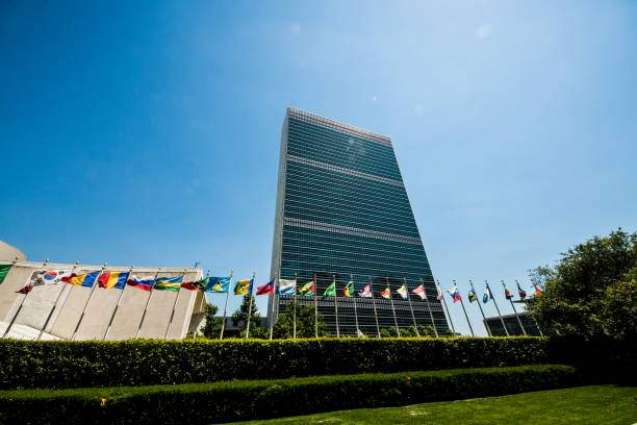The UN Security Council on Monday did not adopt a draft resolution on climate change after its permanent member Russia cast a veto, Niger Permanent Representative to the United Nations Abdou Abarry said after the vote
UNITED NATIONS (Pakistan Point News / Sputnik - 13th December, 2021) The UN Security Council on Monday did not adopt a draft resolution on climate change after its permanent member Russia cast a veto, csaid after the vote.
"The draft resolution has not been adopted owing to the negative vote of a permanent member of the Council," Abarry, who presides with the UN Security Council during the month of December, said.
India voted against the resolution and China abstained from voting.
The draft resolution, co-sponsored by Ireland and Niger, said the adverse effects of climate change can exacerbate vulnerable situations or contribute to future violence, conflicts and instability, presenting "a key risk" to international peace and security.
The document sought to request the UN Secretary-General to integrate climate security risk "as a central component" into the United Nations' conflict-prevention strategies aiming to reduce the risk of conflict relapse due to harmful effects of climate change.
Russian Permanent Representative to the United Nations Vassily Nebenezia said his country could not support the draft because Moscow was against creating a new area of UN Security Council's work that establishes a generic, automatic connection between climate change and global security.
"Positioning climate change as a threat to international security diverts the council's attention from genuine, deep-rooted reasons of conflict in the countries on the Council's agenda," Nebenzia said. "This is convenient for those countries that are actively helping these conflicts to come into being or who have waged military activities in diversion from the Security Council's mandate or simply don't want to provide the necessary help to developing countries."
Nebenzia also said that nations which present climate change as a source of political instability prefer to neglect the negative consequences of military activities on the environment, including the loss of biodiversity, deforestation and soil pollution in conflict-affected areas.
In addition, the draft resolution failed to seek to help countries to work on specific situations and, instead, took a generic approach to the issue of climate, despite the principles of the United Nations' Rio de Janeiro Earth Summit and the 2030 Agenda for Sustainable Development, Nebenzia also said.
"It is particularly sad to see this attempt to shove in this draft resolution when there's a clear lack of consensus among the members of the Security Council now when countries are trying to agree on how to implement the Paris Agreement in Glasgow, and also on measures that really are necessary to fight climate change," Nebenzia added.




